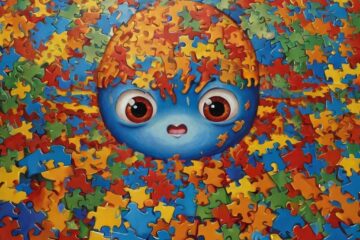Certainly! Let’s delve deeper into the various aspects of curiosity in old age, including its benefits, ways to cultivate it, and the challenges and considerations.
Detailed Benefits of Curiosity in Old Age
Cognitive Health
- Neuroplasticity: Curiosity drives the brain to form new neural connections. Engaging in mentally stimulating activities such as puzzles, reading, and learning new skills can help maintain and even enhance cognitive function.
- Memory and Learning: Curious minds are constantly learning, which can improve memory retention. This ongoing mental activity can delay the onset of cognitive decline and diseases such as Alzheimer’s.
Emotional Well-Being
- Happiness and Life Satisfaction: Curiosity leads to engagement in activities that are fulfilling and enjoyable. This engagement can enhance an individual’s overall sense of well-being and contentment.
- Stress and Anxiety Reduction: By focusing on learning and exploring new things, older adults can shift their attention away from stressors. Curiosity can foster a sense of purpose and reduce feelings of loneliness and depression.
Social Engagement
- Strengthening Relationships: Curiosity about others and the world encourages conversations and deeper connections, fostering empathy and understanding.
- Community Participation: Engaging in community activities and volunteer work allows older adults to connect with others, contributing to a sense of belonging and purpose.
Ways to Cultivate Curiosity in Old Age
- Lifelong Learning
- Educational Opportunities: Many community centers and universities offer courses specifically designed for older adults. Online platforms like Coursera, Udemy, and Khan Academy provide access to a wide range of subjects.
- Reading and Research: Books, articles, and documentaries on various topics can be a source of endless learning.
- Hobbies and Interests
- Creative Pursuits: Engaging in arts and crafts, music, or writing can stimulate creativity and curiosity.
- Gardening and Nature: Spending time in nature and learning about plants, birds, and ecosystems can be both relaxing and intellectually stimulating.
- Social Connections
- Clubs and Groups: Joining clubs related to hobbies, book clubs, or discussion groups can foster social interactions and shared learning experiences.
- Intergenerational Activities: Interacting with younger generations through family, community programs, or schools can provide fresh perspectives and new knowledge.
- Travel and Exploration
- Local Exploration: Exploring local museums, historical sites, and parks can satisfy curiosity without the need for extensive travel.
- Cultural Experiences: Participating in cultural events, festivals, and trying new cuisines can broaden horizons and provide new experiences.
- Mindfulness and Meditation
- Mindful Practices: Techniques such as meditation and yoga can enhance self-awareness and curiosity about one’s own mind and body.
- Reflective Journaling: Writing about daily experiences and thoughts can promote introspection and curiosity about personal growth.
Challenges and Considerations
- Health Issues
- Accessibility: Physical limitations can make certain activities challenging. Finding adaptive methods or activities that accommodate these limitations is important.
- Mental Health: Cognitive impairments can pose challenges, but tailored activities that match the individual’s capabilities can still foster curiosity.
- Societal Attitudes
- Combating Ageism: Society often holds stereotypes about aging that can discourage older adults from exploring new interests. Promoting positive attitudes towards aging and highlighting successful older learners can combat this.
- Encouragement: Support from family, friends, and the community can empower older adults to pursue their interests.
- Access to Resources
- Technology: Access to and familiarity with technology can open up a world of learning opportunities. Offering training and support can help bridge the digital divide.
- Community Support: Libraries, senior centers, and community organizations can provide resources and opportunities for learning and engagement.
Conclusion
Curiosity in old age is not only beneficial but essential for a fulfilling and vibrant life. By actively seeking ways to nurture and support curiosity, older adults can enjoy continued cognitive health, emotional well-being, and social engagement. Communities and families play a crucial role in providing the necessary resources and encouragement to ensure that curiosity remains a lifelong trait.



0 Comments